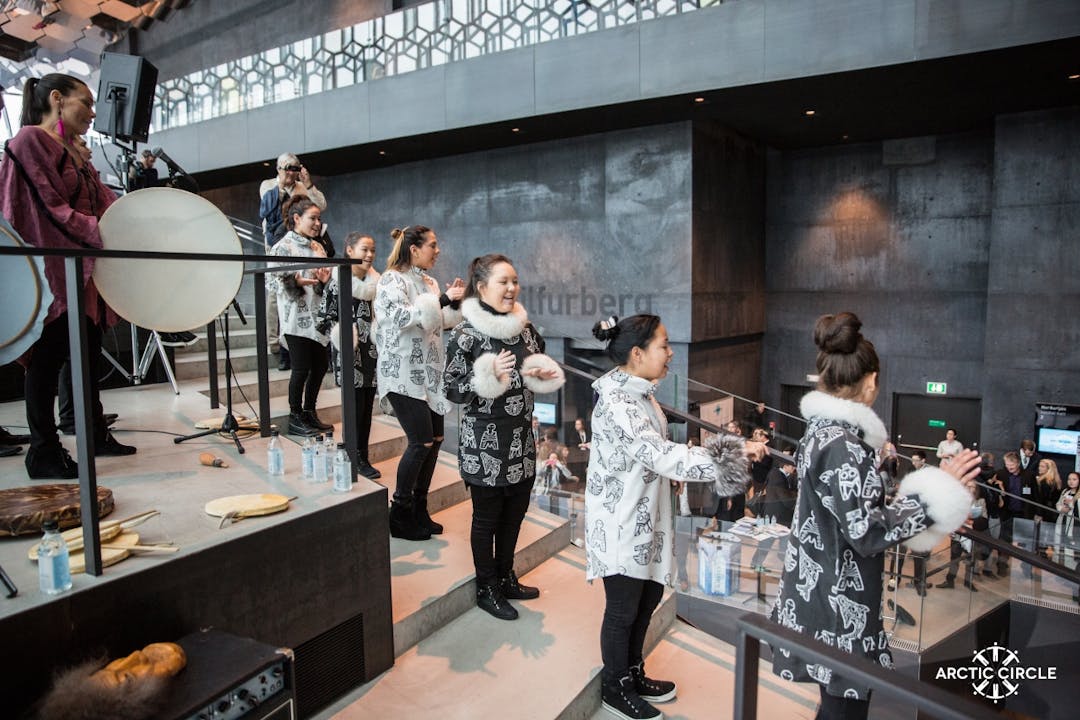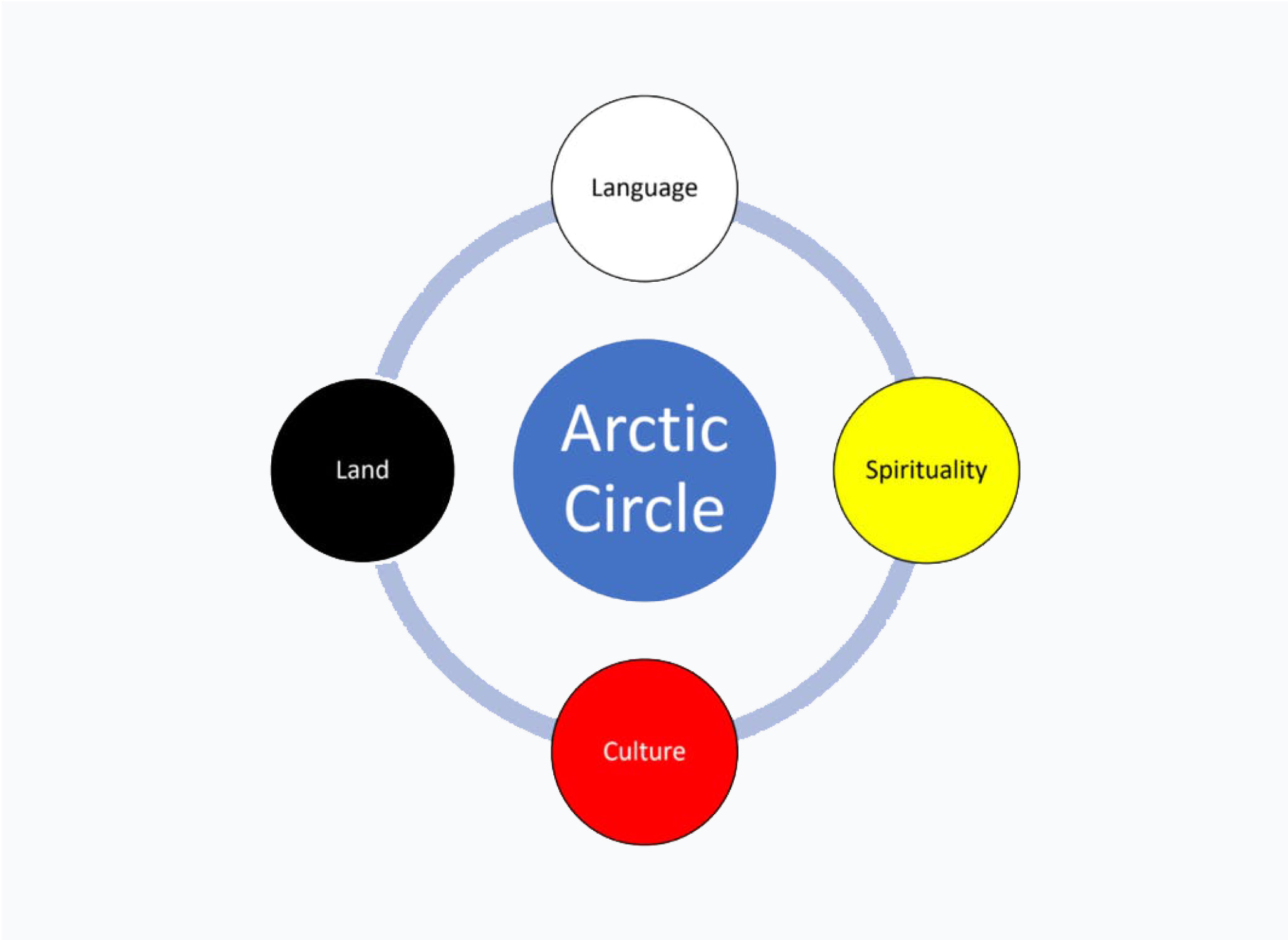This shift towards a more encompassing and global engagement with indigenous affairs was on display at the 2017 Arctic Circle Assembly in a Session organized by Conservation International on Global Perspectives on Traditional Knowledge, Science and Climate Change. The Session highlighted the need for a cross-regional exchange on indigenous affairs and included experts from Africa and Asia who discussed the bridge between science, climate change and traditional knowledge. At the same Assembly a Session titled: North Meets South: Indigenous Arctic-Global Dialogue - Traditional Knowledge in Climate Change Policies and Action, organized by Arctic Circle and Conservation International, provided a path toward this cross-regional knowledge exchange. The Session included speakers from Chad, Cook Islands and Inuit-Alaska who shared their experiences and established connections by identifying mutual challenges and expertise.
In 2018 a Global-Arctic Indigenous Dialogue Session was held at the Assembly under the title: Indigenous Guardianship and Self-governance; Ecosystems and Thriving Communities. This Session was organized in cooperation with Nia Tero, an organization founded by Mr. Peter Seligmann, Chairman of Conservation International. It is a global collaborative meant to directly advance the stewardship of indigenous peoples' and local communities of their vital ecosystems around the world. The Session had speakers from Greenland, Kiribati, Palau and Norway that all spoke about the need of enhancing indigenous guardianship of our Planet, for the sake of our Future.
At the 2019 Assembly the discussion continued at a Session titled: Arctic-Global Indigenous Dialogue, again organized in cooperation with Nia Tero. It included indigenous peoples from around the world and again highlighted the importance of these cross-regional discussions and the need to develop an international consortium of indigenous peoples that could devote more time to this particular discussion. Thus, a decision was made to form a special Arctic Circle Mission Council devoted to the Global-Arctic Indigenous Dialogue. Today, Arctic Circle launches this particular Mission Council.
As Mandy Bayha, co-chair of the Mission Council on the Global-Arctic Indigenous Dialogue eloquently stated: “if we focus or frame discussions around our story and who we are as Arctic Indigenous peoples, everything else falls into clarity. We have been here since the beginning of time and have become masters of adaptation groomed by some of the most harsh and extreme climate in the world. How have we been so successful in our survival? How is it that we thrive? the Arctic is both powerful AND vulnerable. Its like walking a tightrope trying to balance it all. Any small changes can become cataclysmic quickly. People around us need to see through our eyes why and how these "hot" issues are impacting us, our way of life on the land and directly impacting culture, health, wellness, etc. If the Indigenous of the Arctic fall, so does the Arctic herself.”
The Mission Council on the Global-Arctic Indigenous Dialogue is committed to enhance and deepen the dialogue between our Planet’s various indigenous communities. Its chair-people and members are individuals who have in their professional capacities been particularly engaged with the theme of this council. They are:
Chairs:
- Mandy Bayha, Director, Dene Ts’ı̨ lı̨ Dahk’ǝ́ (Department for Language, Culture, & Spirituality), Great Bear Lake, Canada.
- Peter Seligmann, Chairman, Conservation International and Founder of Nia Tero.
Members:
- Vicky Corpuz, Founder, Indigenous Peoples Rights Initiative; Igorot Leader; Former UN special rapporteur on Indigenous rights.
- Hindou Oumarou Ibrahim, Environmental Activist and Geographer; Coordinator of the Association of Peul Women and Autochthonous Peoples of Chad (AFPAT); Co-director of the Pavilion of the World Indigenous Peoples' Initiative and Pavilion at COP21, 22 and 23.
- Kuupik Kleist, Premier of Greenland, 2009-2013.
- Tony Penikett, Author, Premier of Yukon, 1985-1992.
- Mikhail Pogodaev, Deputy Minister for Development of the Arctic and the Peoples of the North of the Republic of Sakha (Yakutia).
- Gunn-Britt Retter, Head of the Arctic and Environmental Unit of the Saami Council.
In the first meeting of the Mission Council the members decided on particular topics to explore in more detail. These topics then merged into overarching themes that can be categorized under the foundational pillars of; Spirituality, Culture, Land and Language.
In the coming months the Mission Council will explore these themes in great detail by various means. The Arctic Circle community can look forward to special JOURNAL articles from the members. Furthermore there will be Sessions at the Arctic Circle Assemblies and Forums as well as online Sessions. The Arctic Circle VIRTUAL platform will also be employed. In these multiple ways the work of the Arctic Circle Mission Council on the Global-Arctic Indigenous Dialogue will be open to anyone interested in this important field.
No. 9/2021, 26 May 2021

